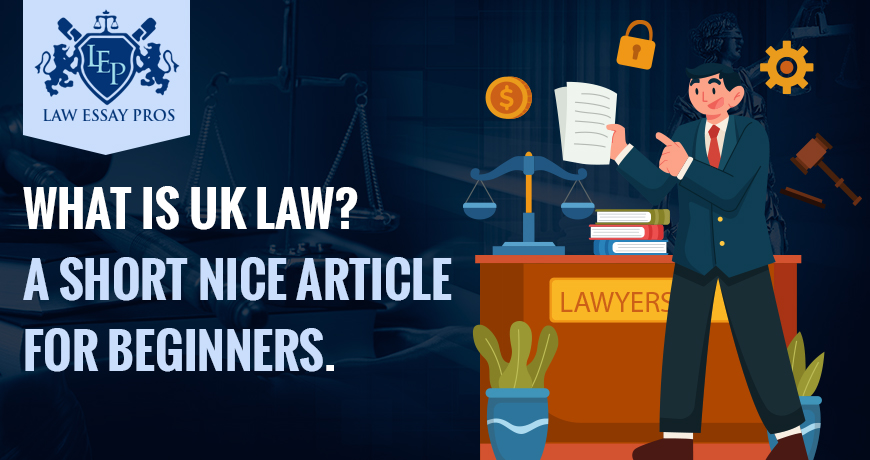
The UK Law system is a common law system that combines the passage of laws with the creation of new laws in Northern Ireland, England and Wales, and Scotland. The English legal system is divided into three basic jurisdictional areas or modules. Each country has its legal system, which includes courts, attorneys, and judges. Laws adopted in one jurisdiction, particularly if they are founded on legislation, can, nevertheless, be enacted on an equal basis in other jurisdictions.
The United Kingdom Supreme Court hears the last plea of each case from all nations, even though courts may decide things differently depending on the jurisdiction. Unlike civil law, common law systems distinguish from the civil law that it tends to be less bounded under civil rules and regulations.
Under common law system such as the UK does not have a written constitution, unlike in civil countries such as Germany and France. Judicial decisions are binding, and the decisions taken by the superior court and only be revoked by the same court or through the legislation. Also, freedom of contract in common law system there are very few provisions made in terms of contractual agreements, however, provisions have been laid out for the protection of private consumers.
Moreover, everything is permitted if not specifically prohibited by the law this can be an example of religiously conservative countries where alcohol is prohibited but in western society, it is neither prohibited nor restricted, but have to follow certain laws for public welfare such as drunk driving.
1. Primary Source of Law:
The primary source of law includes Legislative Assembly rule of law or legislation, statutory tools, Orders in Council, and other primary sources of law. In case of law, superior court or recorder's judgments. Which are binding on subordinate courts and must be followed and enforced by them.
2. Secondary Source of Law:
The secondary source of law, which includes textbooks, legal comments and opinions, and judgments from other jurisdictions, is deemed persuasive and is taken into account by courts when making decisions.
Common-Law:
The common law comprises both basic laws deriving from the courts' power, such as murder offenses, and prosecutorial restrictions, such as court process norms. Common laws are established by judges and are based on customs and traditions. Courts follow and imply the codes promulgated by more senior courts, commonly referred to as courts of record.
Theft, for example, was built on the old common law felony of larceny, but it is now controlled by the Theft Acts 1968 & 78, and other statutes and the real penalties for murder have been superseded by legislation such as the Homicide Act 1957. Common laws are established by judges and are based on customs and traditions.
Civil Law:
Civil law is concerned with lawsuits brought by private parties, most of which are disputes between persons and entities. If any accounts of tort or restitution are committed by any individual or party, the courts will resolve the matter by creating a consensual agreement between the two parties or by compensating them.
Company Law:
This refers to the rules and regulations established by legal authorities to guarantee that businesses and industries adhere to a code of behavior that allows for free and fair competition in the market, avoids consumer exploitation, and incorporates environmental measures.
Contract Law:
This area of law deals with lawful contractual agreements between two or more people or companies. If a written or oral agreement is established and acknowledged in front of a court, the parties are obligated to uphold their separate agreements or face penalties based on the terms and circumstances established.
Family law:
This refers to legislation governing domestic home affairs, such as marital troubles, child policy, financial settlements, and domestic abuse.
Media and Communication Law:
The rules and regulations established by the legal courts to guarantee that the flow of information is regulated and governed by the governing body's legislation to avoid sedition, defamation, and plagiarism.
For Law students to excel in their academics will need to understand the basic and foundational structure of UK law based on which legislation has passed down over time. Also how courts operate and from higher to lower courts, moreover understanding the basic concept of a legal system to ensure public welfare as a top priority.